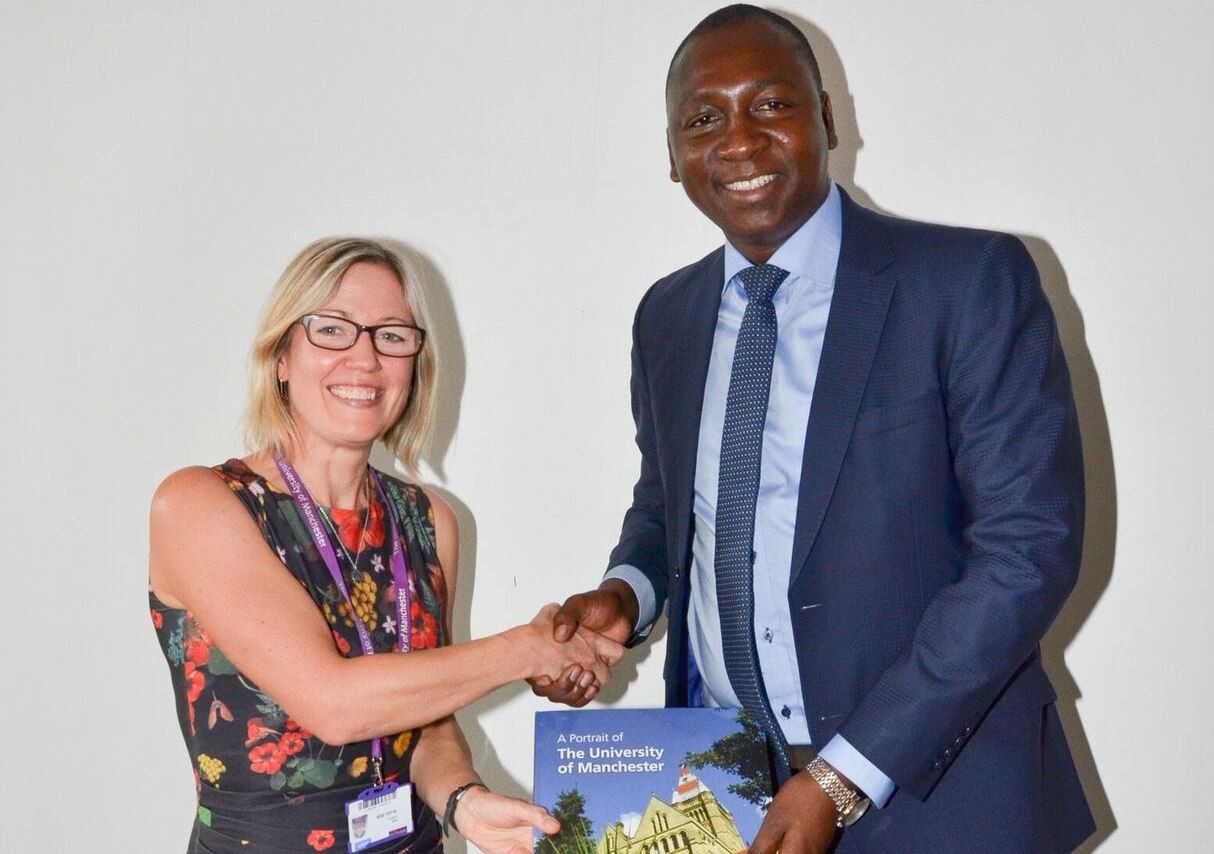Burkina Faso energy minister returns to his university
Dr Bachir Ismaël Ouédraogo, energy minister of Burkina Faso, returned to his alma mater last week to visit academics at The University of Manchester and discuss how our research might help his future ambitions to improve energy access for the majority of his country’s population.
The minister met academics involved in different aspects of energy and climate change research, discussed potential areas for collaboration and also had the opportunity to catch up with past PhD supervisors during his visit.
From his student days to his current role as a government minister, Dr Ouédraogo has always been focused on how to solve his home country’s energy challenges and how important access to electricity is on both a micro and macro level to improve living standards and help get people out of poverty.
After studying for Masters degrees in Economics at Ouagadougou, and Social Policy Financing at the University of Maastricht, Bachir went on to win a scholarship from the Sustainable Consumption Institute at The University of Manchester. He completed his PhD on the impact of climate change, renewable energy and population impact on the future energy demand for Burkina Faso built environment in 2012.
In 2015, Bachir was elected to the National Assembly of Burkina Faso, and earlier this year he was appointed as Minister of Energy.
If I wasn’t at the University of Manchester then I wouldn’t be the Minister of Energy in Burkina Faso. The University played a great role in my career and I’ll be forever grateful for that. I know the quality that there is here, and I want that to benefit, not only me as a Minister but also Burkina Faso as a whole, by having the possibility to collaborate.
Prof Geoffrey Levermore, one of Bachir’s former supervisors at Manchester, said: “It was a great honour to welcome Bachir back to the university to discuss areas where we can work together where the University can contribute to helping Burkina Faso in the future. I wish Bachir every success in his work to continue to improve the lives of those living in his country.”
Dr Ouédraogo’s trip to the UK also included a visit to the University of Birmingham’s Energy Institute, the Energy Catapult and concluded with government meetings in London.
You can find out more about Bachir Ouédraogo’s current energy priorities, advice for other researchers wanting to make a difference and what Manchester means to him in his interview with Policy@Manchester’s Chris Peters, which can be read on the Manchester Policy Blogs web page.
Energy is one of The University of Manchester’s research beacons – shining a spotlight on how we are tackling some of the biggest challenges facing the planet through our world-leading expertise, pioneering discoveries, interdisciplinary collaboration and cross-sector partnerships.



